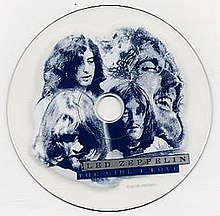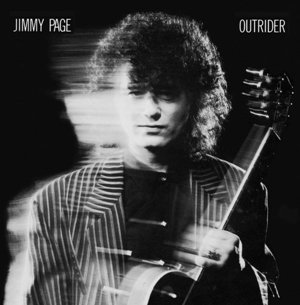
Outrider is an album by Jimmy Page, released by Geffen Records on 19 June 1988. It is his first solo studio album and the first time since 1969 he has recorded with a record label other than Atlantic Records/Swan Song Records. Page recorded the music at his personal studio The Sol. Robert Plant guests on one track, "The Only One", while John Bonham's son Jason plays drums.
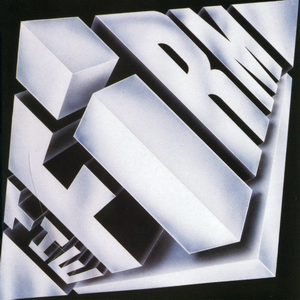
The Firm is the first studio album by British rock band the Firm, released by Atlantic Records on 11 February 1985. Its tracks range from the epic "Midnight Moonlight", based on a previously unreleased song by Led Zeppelin called "Swan Song" – first tinkered with during the Physical Graffiti sessions – to the commercially successful "Radioactive". "Closer" employs a horn section to subtle effect. The album also includes a version of the Righteous Brothers' hit "You've Lost That Lovin' Feelin'".

"Whole Lotta Love" is a song by English rock band Led Zeppelin. It is the opening track on the band's second album, Led Zeppelin II, and was released as a single in 1969 in several countries; as with other Led Zeppelin songs, no single was released in the United Kingdom. In the United States, it became their first hit and was certified gold. Parts of the song's lyrics were adapted from Willie Dixon's "You Need Love", recorded by Muddy Waters in 1962; originally uncredited to Dixon, a lawsuit in 1985 was settled with a payment to Dixon and credit on subsequent releases.

"White Room" is a song by British rock band Cream, composed by bassist Jack Bruce with lyrics by poet Pete Brown. They recorded it for the studio half of the 1968 double album Wheels of Fire. In September, a shorter US single edit was released for AM radio stations, although album-oriented FM radio stations played the full album version. The subsequent UK single release in January 1969 used the full-length album version of the track.
"Travelling Riverside Blues" is a blues song written by the bluesman Robert Johnson. He recorded it on June 20, 1937, in Dallas, Texas, during his last recording session. The song was unreleased until its inclusion on the 1961 Johnson compilation album King of the Delta Blues Singers.

"Love Rollercoaster" is a song by the American funk/R&B band Ohio Players, originally featured on their 1975 album Honey. It was composed by William Beck, Leroy Bonner, Marshall Jones, Ralph Middlebrooks, Marvin Pierce, Clarence Satchell, and James Williams. It was a number-one U.S. hit in January 1976, and was certified gold. In Canada, the song spent two weeks at number two. "Love Rollercoaster" was covered by the American rock band Red Hot Chili Peppers for the soundtrack of the 1996 animated movie Beavis and Butt-Head Do America.

"I Think I Love You" is a song by Tony Romeo, written as the debut single for fictional musical TV family the Partridge Family, released in August 1970, a month prior to the debut of the ABC-TV musical sitcom The Partridge Family starring Shirley Jones and featuring David Cassidy, both of whom appear on the record, with Cassidy as lead vocalist. The single topped Billboard's Hot 100 for three weeks in November and December 1970 and later was certified by NARM as the best-selling single of 1970.
Edward Bear was a Toronto-based Canadian pop-rock group. The band is best known for its chart-topping singles, "You, Me and Mexico", "Last Song", and "Close Your Eyes", used as the signing-off song for Delilah's radio show.
"Emma" is a 1974 song by the British soul band Hot Chocolate. Written by band members Errol Brown (vocals) and Tony Wilson (music), the song address themes of suicide, early death and lost childhood. Brown's lyrics celebrate his recently passed mother. Their rawness was developed after the producer Mickie Most asked him for further "depth and darkness".

"Don't Let Me Be Misunderstood" is a song written by Bennie Benjamin, Horace Ott and Sol Marcus for the American singer-songwriter and pianist Nina Simone, who recorded the first version in 1964. "Don't Let Me Be Misunderstood" has been covered by many artists. Two of the covers were transatlantic hits, the first in 1965 by The Animals, which was a blues rock version; and a 1977 by the disco group Santa Esmeralda, which was a four-on-the-floor rearrangement. A 1986 cover by new wave musician Elvis Costello found success in Britain and Ireland.

"San Francisco " is an American pop music song, written by John Phillips, and sung by Scott McKenzie. It was produced and released in May 1967 by Phillips and Lou Adler, who used it to promote their Monterey International Pop Music Festival held in June of that year.

"Tell Me a Lie" is a song composed by Mickey Buckins and Barbara Wyrick. Originally recorded by Lynn Anderson for her 1974 What a Man My Man Is album, it was released later that same year as a single by Sami Jo Cole, who took it to number 21 on both of the major U.S. pop charts. It also charted in Canada (#17). Cole's version was also an Adult Contemporary hit, reaching number 14 in the U.S. and number 27 in Canada.
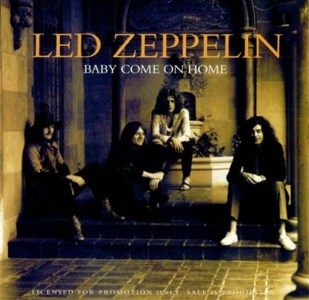
"Baby Come On Home" is a soul song by English rock band Led Zeppelin. It was recorded during sessions for the band's debut album but remained unreleased until 1993, when it was included on the compilation Boxed Set 2. The song was also included as a bonus track on some CD editions of the band's ninth studio album Coda as included in The Complete Studio Recordings (1993) and Definitive Collection Mini LP Replica CD Boxset (2008). In 2015, the song was included on disc one of the two companion discs of the reissue of Coda.
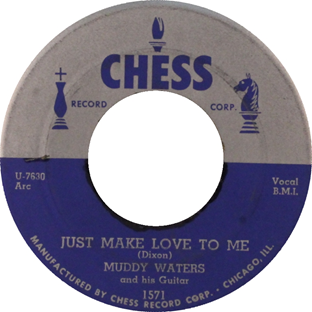
"I Just Want to Make Love to You" is a 1954 blues song written by Willie Dixon, first recorded by Muddy Waters, and released as "Just Make Love to Me". The song reached number four on Billboard magazine's R&B Best Sellers chart.
"Hair" is the title song to the 1967 musical Hair and the 1979 film adaptation of the musical.
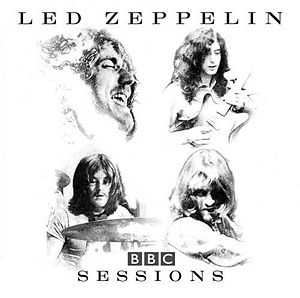
BBC Sessions is a compilation album featuring studio sessions and a live concert recorded by English rock group Led Zeppelin for the BBC. It was released on 11 November 1997, by Atlantic Records. Disc one consists of material from four different 1969 BBC sessions. Disc two contains most of the 1 April 1971 concert from the Paris Theatre in London. Disc three was only included in a limited run of album releases and features rare interviews from 1969, 1976/1977, and 1990.

"I Love You" is a song by the Climax Blues Band, released as a single in 1980, from the album Flying the Flag.

"Only Sixteen" is a song by American singer-songwriter Sam Cooke, released in May 1959. The song was a top 15 hit on Billboard's Hot R&B Sides chart and also charted within the top 30 of the Billboard Hot 100 and the UK Singles Chart. In the UK it was covered, and taken to No. 1, by Craig Douglas.

Johnny Winter (1944–2014) was an American rock and blues musician. From 1959 to 1967, he recorded several singles for mostly small record companies in his native Texas. In 1968, Winter completed his first album, The Progressive Blues Experiment, and in 1969, he was signed to Columbia Records. With the label, Winter had his greatest success on the main American record chart; Johnny Winter (1969), Second Winter (1969), Live Johnny Winter And (1971), and Still Alive and Well (1973) all reached the top forty on the Billboard 200 album chart. In 1974, the Recording Industry Association of America (RIAA) certified Live Johnny Winter And gold, his only record to receive an award from the organization.
